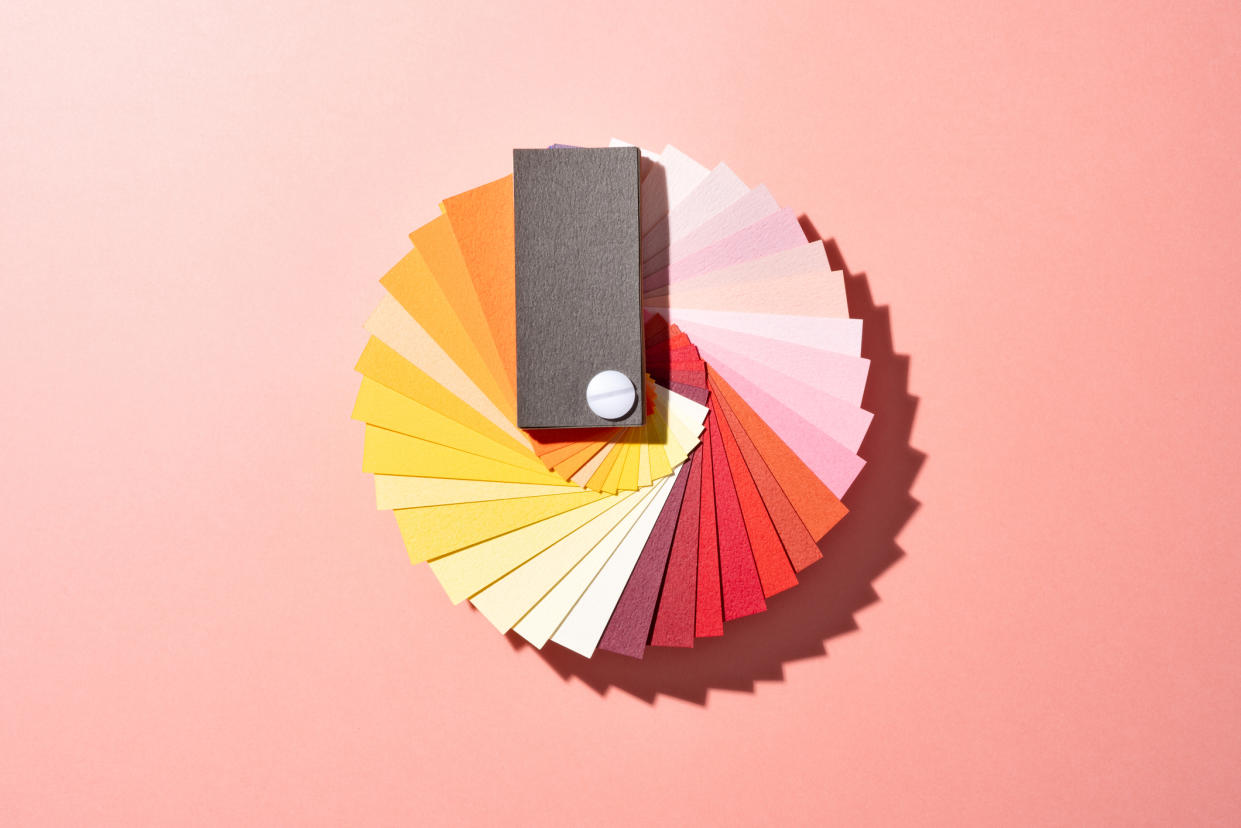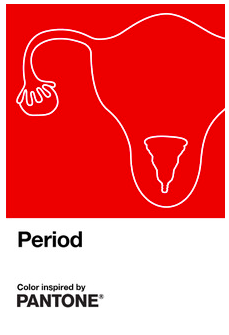Pantone releases new colour to tackle the stigma surrounding menstruation

Pantone has introduced its latest colour and said it hopes it will help tackle the stigma surrounding menstruation.
The Pantone Color Institute has partnered with intimate healthcare brand INTIMINA to launch the custom colour, which they believe is emblematic of a period, and represents a steady flow during menstruation.
The crimson hue, called Period, was created to be ‘dynamic’ and ‘energising’, and forms part of INTIMA’s Seen+Heard campaign, which aims to help remove the stigma that still surrounds periods.
The hope is it could help get people talking about menstruation, and empower everyone – regardless of gender – to talk freely about periods.
Read more: Superdrug launches range of sanitary products for 'people who menstruate'
“Despite the fact that billions of people experience menstruation, it has historically been treated as something that shouldn’t be seen or talked about publicly,” explains Danela Žagar Intimina Global Brand Manager.
“And if we look at popular culture, depictions of periods have ranged from wildly inaccurate and unsympathetic to being the subject of jokes and derision.
“Enough is enough, it’s 2020. Isn’t it time periods stop being considered as a private affair or a negative experience? Isn’t it time we call out people that try to perpetuate the stigma surrounding periods? Or those that mock it? Isn’t it time we come together to encourage period positivity and make sure periods are seen and heard?”

It is hoped the partnership could help encourage more period positivity and normalise something that for millions is part of every day life.
“Pantone’s ‘Period’ red shade represents exactly what our Seen+Heard campaign is about: making periods visible, encouraging positive conversations and normalising menstruation in our culture, our society and in our everyday lives.”
Read more: Bodyform's advert is the boundary-breaking period campaign women have been waiting for
Laurie Pressman, Vice-President, Pantone Color Institute from Pantone describes the new colour as an “active and adventurous red hue” and hopes it will help encourage people who menstruate to feel proud of who they are.
“To own their period with self-assurance; to stand up and passionately celebrate the exciting and powerful life force they are born with; to urge everyone regardless of gender to feel comfortable to talk spontaneously and openly about this pure and natural bodily function,” he says.
Watch: Is paying tax on period products sexist?
As part of the campaign, INTIMINA has also donated £2,000 to ActionAid, an international charity that works with women and girls living in poverty.
The donation will help in supporting ActionAid’s work, which includes the fight against period poverty and reducing the stigma around menstruation.
“Around the world today, millions of women and girls still suffer due to the stigma associated with periods,” explains Jillian Popkins (Director of Policy, Advocacy and Programmes) from ActionAid UK.
“Many girls miss vital days of school, or even drop out altogether, which is one reason so many women experience life-long poverty globally. Without the stigma around periods, more women could escape poverty, fulfil their potential and strengthen their communities. This important campaign will help change that.”
Read more: Women spend £5,000 on period products in their lifetimes
Last year, a survey suggested a third of men believe it is “unprofessional” for women to talk about their period in the workplace.
While almost half of the workforce will have to navigate having a period at work every month, it seems they have to do so in secret with the survey finding 32% of men think it is “unprofessional” for women to talk about the topic of menstruation while they’re at work.
Another survey research found that just under half of women are still using a code name when referring to their period.
The survey, by period product subscription service, Mondays, found women are turning to covert code names because many believe the term 'period' sounds dirty, rude, awkward and embarrassing.



